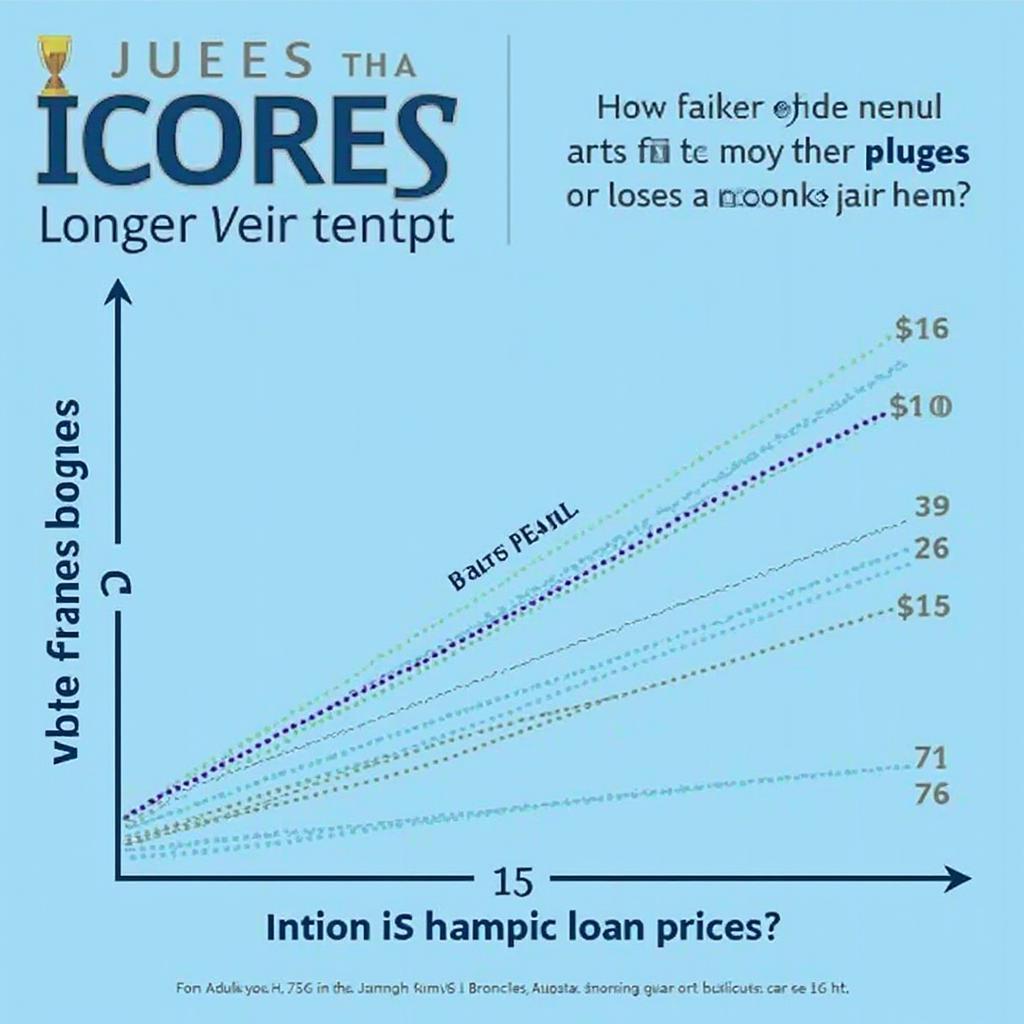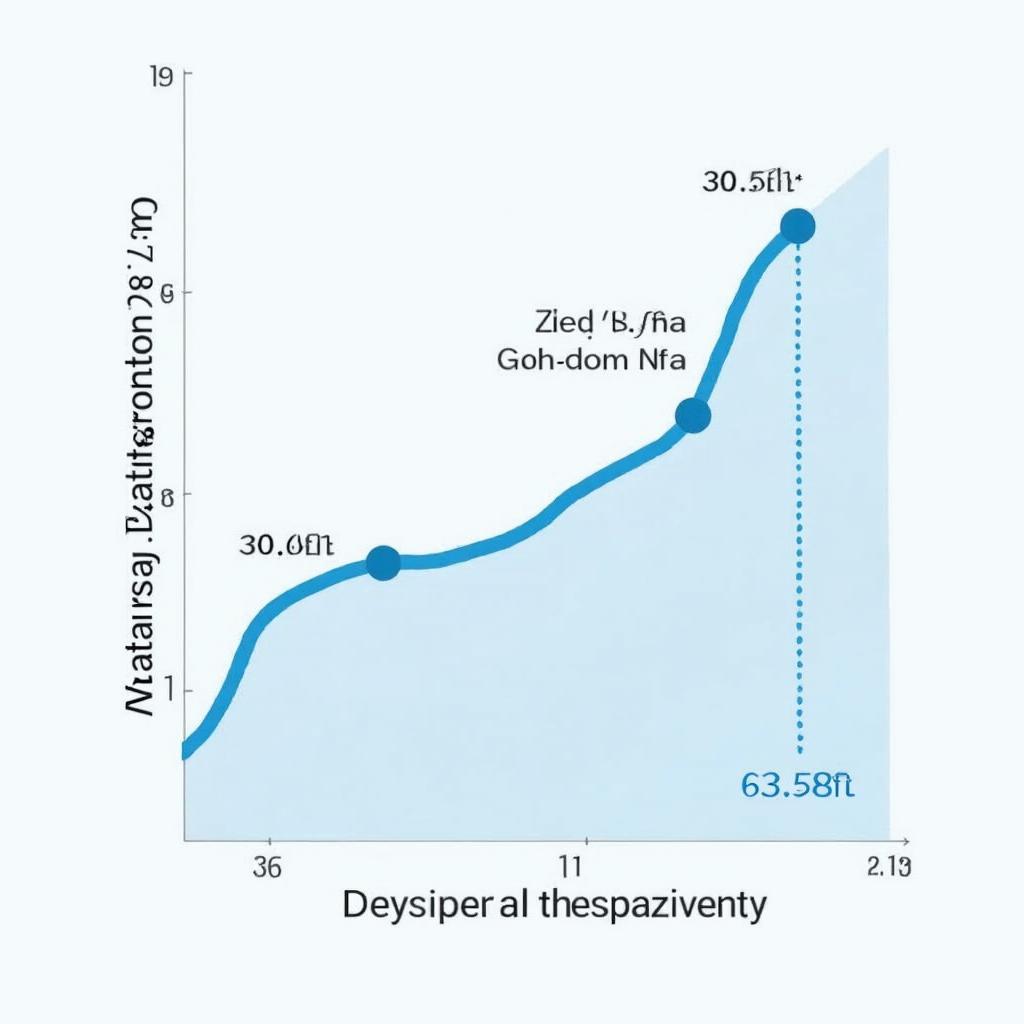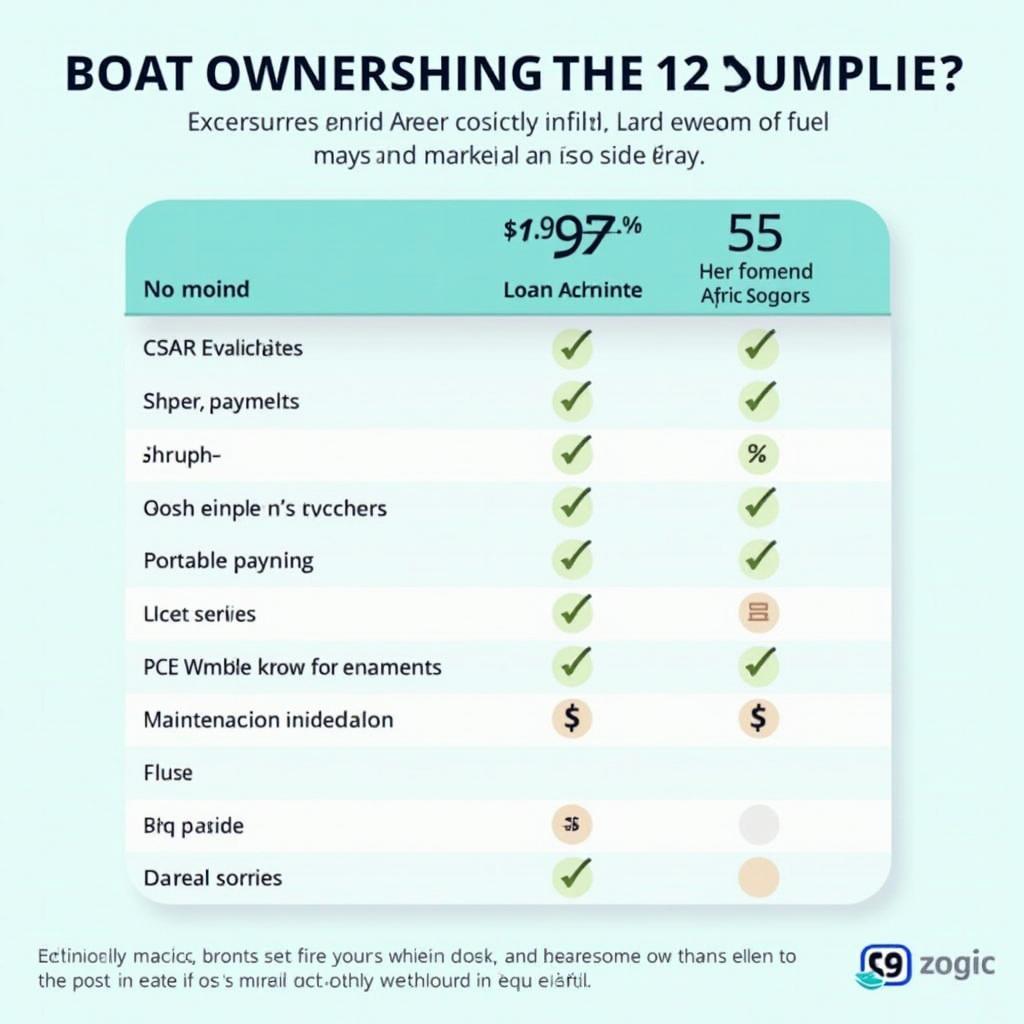
Why Are Boat Loans So Long?
Boat loans often span longer periods than car loans, sometimes reaching 20 years. This extended timeframe is primarily due to the higher purchase price of boats compared to cars. Understanding the factors behind these longer loan terms is crucial for making informed financial decisions.
Understanding Boat Loan Terms
Several factors influence the length of boat loans, affecting monthly payments, total interest paid, and overall affordability. Let’s delve into these key elements.
The Impact of Boat Prices and Loan Amounts
Boats, especially larger models, represent a significant investment. Their higher price tag directly translates to larger loan amounts, requiring longer loan terms to manage monthly payments. Imagine financing a $100,000 boat versus a $30,000 car – the larger loan necessitates a longer repayment period to keep monthly installments manageable.
 Boat Price and Loan Term Relationship
Boat Price and Loan Term Relationship
Interest Rates and Their Role in Boat Loan Duration
Interest rates play a significant role in loan duration. Lower interest rates allow for shorter loan terms while maintaining affordable monthly payments. Conversely, higher rates often extend loan terms to make payments more manageable. Understanding the current interest rate environment is crucial for negotiating favorable loan terms.
Depreciation and its Effect on Loan Terms
Boats depreciate, just like cars, but often at a slower pace. Lenders consider depreciation when determining loan terms, ensuring the loan amount doesn’t exceed the boat’s value. This factor can contribute to longer loan terms, as lenders aim to mitigate risk.
 Impact of Boat Depreciation on Loan Terms
Impact of Boat Depreciation on Loan Terms
Loan Term Options and Their Implications
Boat loans offer various term options, each with its pros and cons. Shorter terms result in higher monthly payments but less total interest paid. Longer terms lower monthly payments but increase the total interest paid over the loan’s life. Choosing the right term requires careful consideration of your financial situation.
Choosing the Right Boat Loan Term
Finding the optimal loan term involves balancing affordability and long-term cost. Here are key considerations:
Assessing Your Budget and Financial Capacity
Before seeking a boat loan, honestly assess your budget. Factor in not just monthly payments, but also fuel, maintenance, storage, and other boat-related expenses. Ensure the loan fits comfortably within your overall financial picture.
 Budgeting for a Boat Loan
Budgeting for a Boat Loan
Negotiating with Lenders and Exploring Options
Don’t settle for the first loan offer you receive. Shop around, compare rates and terms from different lenders, and negotiate for the best possible deal. Credit unions and online lenders sometimes offer more competitive rates than traditional banks.
Impact of Down Payment on Loan Term
A larger down payment reduces the loan amount, enabling you to secure shorter terms and potentially lower interest rates. It also strengthens your loan application, demonstrating your financial commitment.
Frequently Asked Questions (FAQs)
-
What is the average boat loan term? Boat loan terms typically range from 10 to 20 years, depending on the loan amount and the lender.
-
Can I refinance a boat loan? Yes, refinancing is an option, especially if interest rates have dropped since you secured your initial loan.
-
What credit score is needed for a boat loan? Lenders generally prefer borrowers with good credit scores, typically above 650.
-
Are there penalties for prepaying a boat loan? Some lenders impose prepayment penalties, so check your loan agreement carefully.
-
What documents are needed for a boat loan application? Typically, you’ll need proof of income, identification, and details about the boat you intend to purchase.
-
How does boat insurance affect the loan? Lenders require boat insurance as a condition of the loan, protecting their investment in case of damage or loss.
-
What happens if I default on a boat loan? Defaulting on a boat loan can lead to repossession of the boat and damage to your credit score.
Conclusion
Understanding why boat loans are often long is essential for navigating the boat buying process. By considering factors like boat price, interest rates, depreciation, and your financial capacity, you can make informed decisions and select the loan term that best aligns with your needs and budget. Don’t rush the process – carefully weigh your options and choose a loan that allows you to enjoy your boat without undue financial strain. Remember, choosing the right boat loan term is crucial to enjoying your time on the water.




